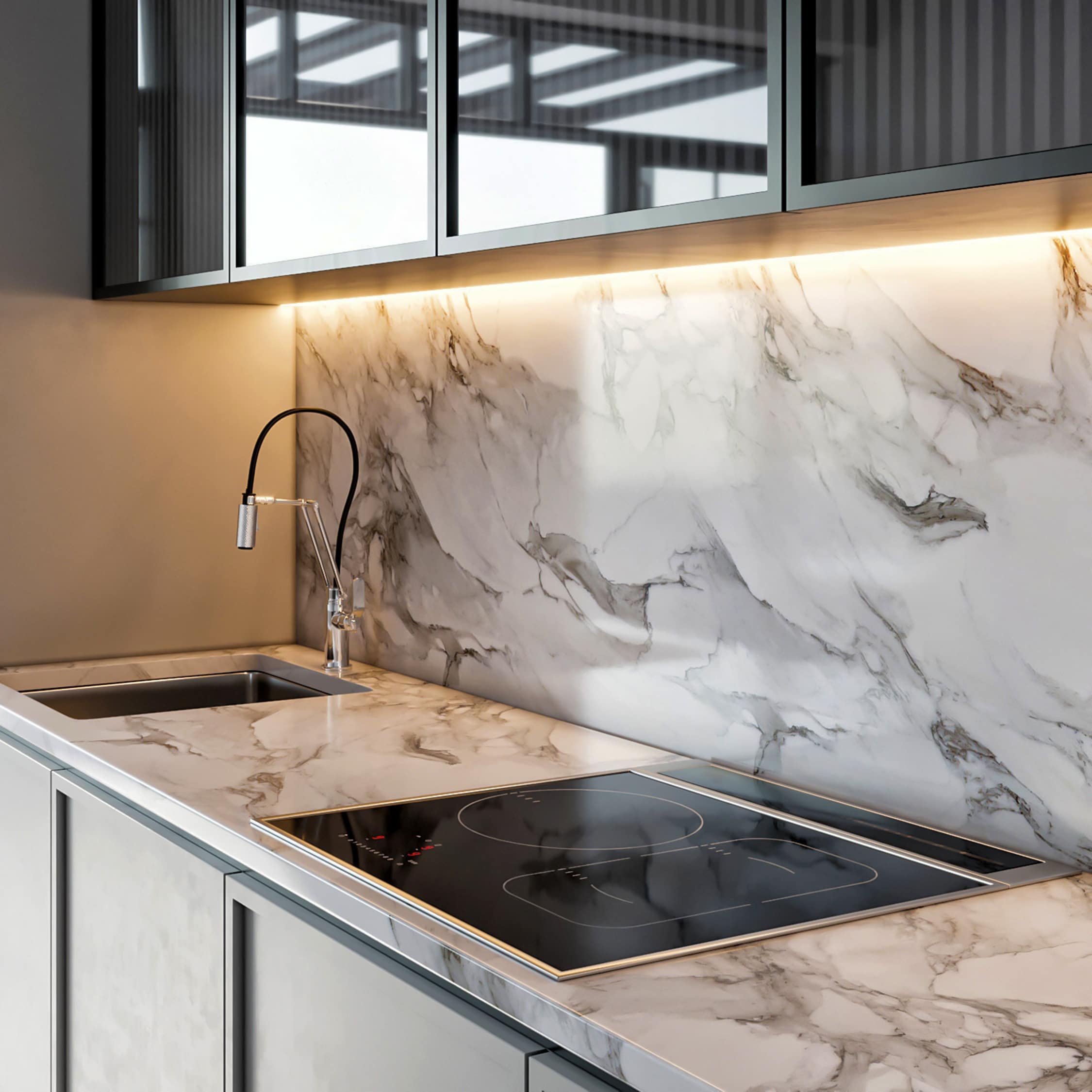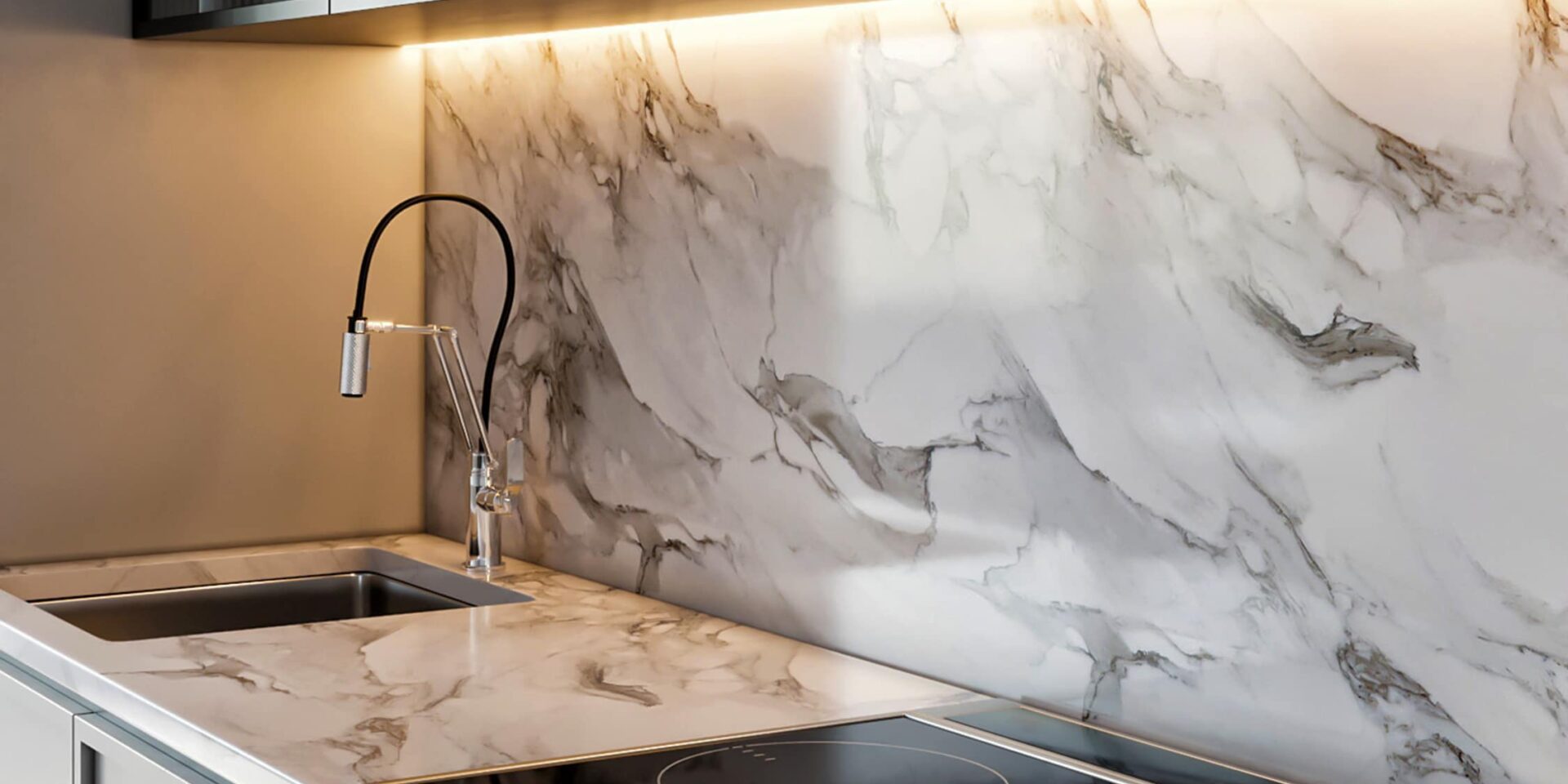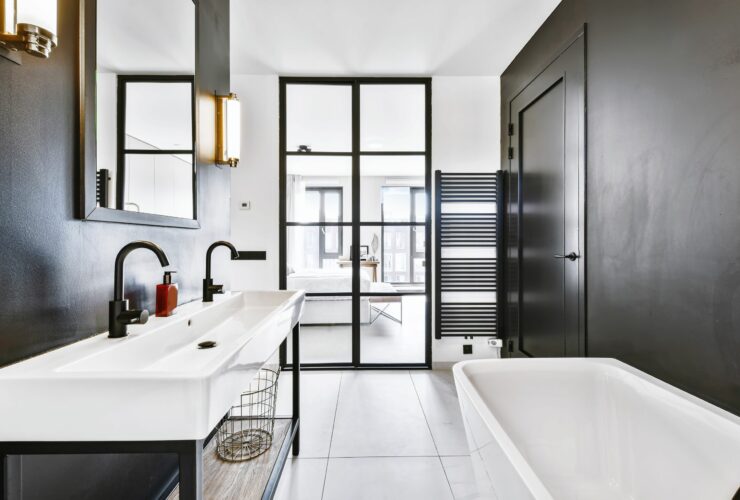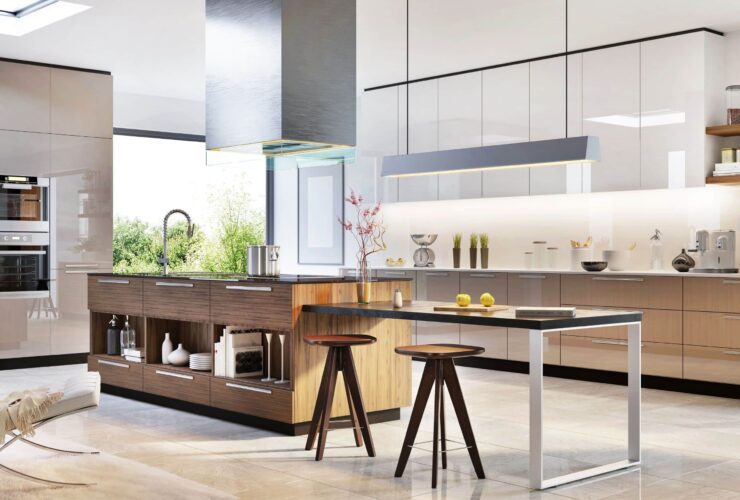Quartz Backsplash: Elevating Your Kitchen Remodel with Style and Durability
When it comes to kitchen remodel projects, the devil is often in the details. While countertops and cabinets take center stage, it’s the often-overlooked quartz backsplash that can truly transform your kitchen’s aesthetics and functionality. In this comprehensive guide, we’ll explore the wonders of a quartz backsplash, its role in enhancing your kitchen’s appeal, and how it complements both your kitchen countertop and overall design.

Why Choose Quartz Backsplash?
Quartz backsplashes have gained immense popularity in recent years, and for good reason. Here are three key reasons why they should be on your radar:
Unparalleled Elegance
Quartz backsplashes exude an air of luxury and sophistication, instantly elevating your kitchen’s visual appeal. The smooth, glossy surface adds a touch of elegance that can complement various design styles, from modern to traditional.
Durability Beyond Compare
In the heart of the kitchen, your backsplash faces its fair share of splatters, spills, and heat. Quartz, a resilient material, is not only resistant to stains and scratches but also heat-resistant. It provides a protective barrier for your walls, ensuring they remain in pristine condition over the years.
Seamless Integration
Quartz backsplashes seamlessly integrate with your kitchen remodel. Whether you’re going for a cohesive look or a striking contrast, quartz backsplashes can be customized to match or complement your kitchen countertop and cabinetry, enhancing the overall aesthetic appeal.
The Cost of Quartz Backsplash
When embarking on a kitchen remodel, budget considerations are paramount. It’s essential to understand the cost factors associated with installing a backsplash. While quartz offers numerous advantages, including durability and aesthetics, it’s crucial to be aware of the financial implications.
Factors Influencing the Cost:
Quartz Material Selection
The type of quartz you choose can significantly impact the cost. Premium quartz varieties with intricate patterns and high-end finishes tend to be more expensive than basic options.
Size and Complexity
The size and complexity of your kitchen’s layout and design will affect the amount of quartz material required and, consequently, the cost of installation. Larger kitchens or those with intricate designs may require more quartz.
Labor Costs
Hiring a professional installer is highly recommended for quartz backsplash installation. Labor costs can vary depending on your location, the installer’s experience, and the complexity of the project.
Edge Profiles
If you opt for customized edge profiles on your quartz backsplash, this will add to the overall cost. Edge profiles can give your backsplash a unique look but come at an additional expense.
Sealing and Maintenance
While quartz is relatively low maintenance, it’s essential to consider the cost of sealing the material after installation. This step ensures the longevity of your backsplash and may require periodic resealing.
Average Cost Range:
On average, the cost of a quartz backsplash can range from $50 to $120 per square foot, including materials and installation. However, it’s important to note that this cost can vary significantly based on the factors mentioned above.
Tips for Managing Costs:
To ensure your quartz backsplash aligns with your budget:
- Set a Realistic Budget: Determine how much you’re willing to invest in your kitchen remodel, including the backsplash. Having a clear budget in mind will help you make informed choices.
- Explore Different Quartz Options: Visit multiple suppliers and explore a variety of quartz options. You may find a beautiful, budget-friendly quartz slab that suits your design preferences.
- Prioritize Your Design Choices: If you’re working within a tight budget, prioritize the elements that matter most to you. For example, you can choose a simpler edge profile or opt for a standard quartz variety to save costs.
- Get Multiple Quotes: Obtain quotes from different installers to compare pricing. Ensure that the quotes include all costs, such as materials, labor, and any additional charges.
Incorporating Quartz Backsplash into Your Kitchen Remodel
Adding a quartz backsplash to your kitchen remodel involves thoughtful planning and creative execution. Here’s a step-by-step guide to help you seamlessly integrate this stunning feature:
Choose Your Quartz
Begin by selecting the quartz slab that aligns with your kitchen’s design theme. Consider color, pattern, and texture, keeping in mind how it will complement your kitchen countertop and kitchen cabinets.
Measure and Cut
Precise measurements are crucial for a flawless fit. Once you’ve chosen your quartz slab, have it professionally measured and cut to fit your kitchen’s dimensions perfectly.
Installation
Hire a professional installer, like Dulles Kitchen and Bath, with experience in working with quartz. The installation process involves attaching the quartz slab securely to your kitchen wall, ensuring it’s level and seamless.
Seal the Deal
To maintain the quartz backsplash’s pristine appearance, make sure it’s properly sealed. Quartz is naturally resistant to stains, but sealing enhances its longevity and makes cleaning a breeze.
Finishing Touches
Complete the look by adding matching or contrasting grout. Grout color and thickness can influence the overall aesthetics, so choose wisely to achieve your desired effect.
Natural and Engineered Stones as Alternatives to Quartz Backsplash
While quartz is a popular choice for backsplashes due to its durability and versatility, it’s not the only option available. Natural stones and engineered stones offer compelling alternatives, each with its unique characteristics. Let’s explore these alternatives to help you make an informed decision for your kitchen remodel.
Natural Stones:
- Granite: Granite is renowned for its natural beauty and durability. It’s a top choice for those seeking a timeless, organic look. Granite backsplashes come in various colors and patterns, making it easy to find one that complements your kitchen countertop. However, it does require periodic sealing to maintain its appearance and resist stains.
- Marble: Marble exudes luxury and sophistication. It’s a classic choice for elegant kitchen designs. Marble backsplashes are available in a range of shades, from white to black, and offer a unique veining pattern. Keep in mind that marble is more porous than quartz and may require more maintenance to prevent staining and etching.
- Slate: Slate is a rugged, natural stone that adds a rustic charm to your kitchen. It’s highly durable and resistant to heat, making it an excellent choice for busy cooking areas. Slate backsplashes are available in dark, earthy tones, making them ideal for kitchens with a warm, cozy atmosphere.
Engineered Stones:
- Porcelain: Porcelain slabs mimic the look of natural stones, including marble and granite. They offer exceptional durability, resistance to stains, and easy maintenance. Porcelain backsplashes are available in a wide range of colors and patterns, allowing you to achieve the desired aesthetic without the maintenance requirements of natural stone.
- Glass: Glass backsplashes are a modern and sleek choice. They come in various colors and can be customized with textures or patterns. Glass is non-porous, making it easy to clean and resistant to stains. However, it may not be as resistant to impact as natural or engineered stone.
- Travertine: Travertine is a type of limestone known for its distinctive, textured appearance. It offers a rustic and earthy look to your kitchen. While travertine is more porous than quartz, it can be sealed to enhance its stain resistance.
Choosing the Right Alternative:
When selecting an alternative to quartz for your backsplash, consider the following factors:
- Aesthetic Preference: Your choice should align with your kitchen’s design theme and your personal style.
- Durability: Assess how well the material can withstand daily wear and tear, including potential heat, moisture, and impact.
- Maintenance: Consider the level of maintenance you’re comfortable with. Some natural stones may require more upkeep than engineered options.
- Budget: Determine how the cost of the alternative fits into your overall kitchen remodel budget.
FAQs About Quartz Backsplash
How does a quartz backsplash differ from other materials like tile or granite?
A quartz backsplash offers superior durability and is less prone to staining and damage compared to tile or granite. Its non-porous surface makes cleaning easier, and it can be customized to seamlessly match your countertop.
Can I install a quartz backsplash myself, or should I hire a professional?
While DIY installation may be tempting, it’s advisable to hire a professional with experience in handling quartz. Precision is crucial to achieve a flawless look, and a skilled installer can ensure the best results.
Are there any design limitations with quartz backsplashes?
Quartz backsplashes offer a wide range of design options, but it’s essential to work with a reputable supplier who can provide you with a variety of colors and patterns. This ensures you can find the perfect match or contrast for your kitchen remodel.
Conclusion
In kitchen remodels, a quartz backsplash stands out as a game-changer. Its elegant aesthetics, remarkable durability, and seamless integration with your kitchen countertop make it a top choice for homeowners seeking both style and functionality. Elevate your kitchen’s appeal and make a lasting impression with a quartz backsplash – it’s the finishing touch your culinary haven deserves.



